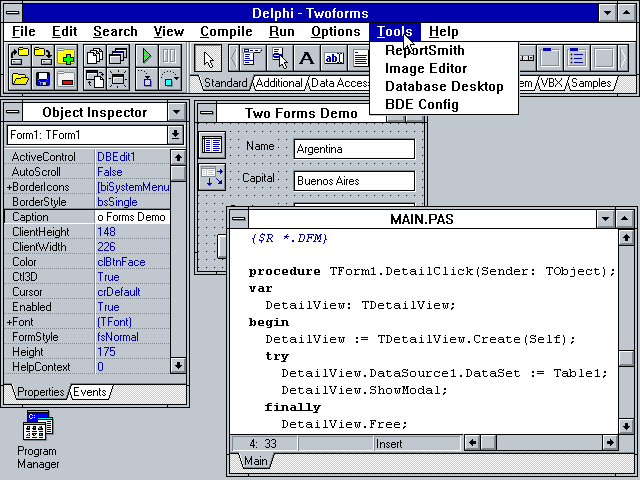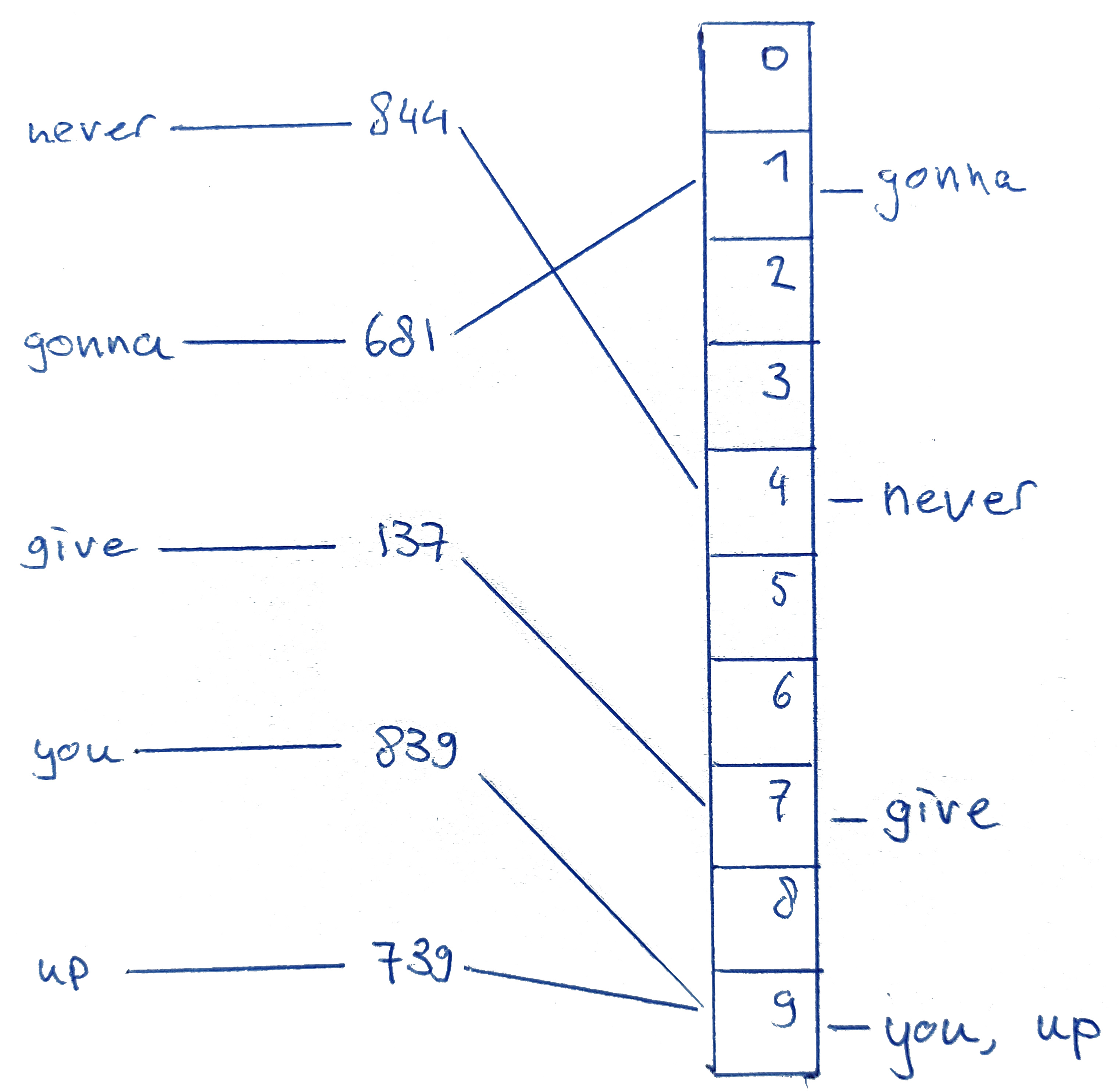Fantastic languages
 and what to learn from them
and what to learn from them 


![]() - BASIC - 💻
- BASIC - 💻
10 FOR I = 1 to 100
20 LET S$ = ""
30 IF I % 3 = 0 THEN LET S$ = S$ + "FIZZ"
40 IF I % 5 = 0 THEN LET S$ = S$ + "BUZZ"
50 IF S$ = "" THEN LET S$ = I
60 PRINT S$
70 NEXT I![]() - BASIC - 🤔
- BASIC - 🤔

![]() - BASIC - 💡
- BASIC - 💡

from my master’s thesis
![]() - PHP - 💻
- PHP - 💻
<?php
for ($i = 1; $i <= 100; $i++)
{
if (!($i % 15))
echo "FizzBuzz\n";
else if (!($i % 3))
echo "Fizz\n";
else if (!($i % 5))
echo "Buzz\n";
else
echo "$i\n";
}
?>![]() - PHP - 🤔
- PHP - 🤔
![]() - PHP - 💡
- PHP - 💡

![]() - Elm - 💻
- Elm - 💻
import Html exposing (text)
import List exposing (map)
main =
List.range 1 100 |> map getWordForNum |> String.join " "
getWordForNum num =
if modBy num 15 == 0 then
"FizzBuzz"
else if modBy num 3 == 0 then
"Fizz"
else if modBy num 5 == 0 then
"Buzz"
else
String.fromInt num![]() - Elm - 🤔
- Elm - 🤔
I got to the end of the line without seeing the closing double quote:
6| helloworld = "Hello world
^
Strings look like "this" with double quotes on each end. Is the closing double
quote missing in your code?
Note: For a string that spans multiple lines, you can use the multi-line string
syntax like this:
"""
# Multi-line Strings
- start with triple double quotes
- write whatever you want
- no need to escape newlines or double quotes
- end with triple double quotes
"""![]() - Elm - 💡
- Elm - 💡

![]() - Lisp - 💻
- Lisp - 💻
(define (fizzbuzz x y)
(println
(cond ((= (modulo x 15) 0) "FizzBuzz")
((= (modulo x 3) 0) "Fizz")
((= (modulo x 5) 0) "Buzz")
(else x)))
(if (< x y) (fizzbuzz (+ x 1) y)))
(fizzbuzz 1 100)Scheme dialect
![]() - Lisp - 🤔
- Lisp - 🤔
Minimal syntax, maximal power
(println "Hello world")
(+ 1 (* 2 3) 4)
(define Y
(lambda (f)
(f (lambda (x) ((Y f) x)))))![]() - Lisp - 💡
- Lisp - 💡

![]() - Delphi - 💻
- Delphi - 💻
program FizzBuzz;
var
i: Integer;
begin
for i := 0 to 100 do
begin
if i mod 15 = 0 then
WriteLn('FizzBuzz');
else if i mod 3 = 0 then
WriteLn('Fizz');
else if i mod 5 = 0 then
WriteLn('Buzz');
else
WriteLn(IntToStr(i));
end;
end.![]() - Delphi - 🤔
- Delphi - 🤔

![]() - Delphi - 💡
- Delphi - 💡

![]() - AnnotationScript - 💻
- AnnotationScript - 💻
import nl.jqno.annotationscript.AnnotationScript;
import nl.jqno.annotationscript.Annotations.*;
@Zero("begin")
@Zero(list={@One("define"), @One("fizz-buzz"), @One(list={@Two("lambda"), @Two(list=@Three("n")), @Two(list={
@Three("cond"),
@Three(list={@Four("="), @Four(list={@Five("%"), @Five("n"), @Five("15")}), @Four("0")}), @Three("'fizzbuzz'"),
@Three(list={@Four("="), @Four(list={@Five("%"), @Five("n"), @Five("3")}), @Four("0")}), @Three("'fizz'"),
@Three(list={@Four("="), @Four(list={@Five("%"), @Five("n"), @Five("5")}), @Four("0")}), @Three("'buzz'"),
@Three("else"), @Three("n")})})})
@Zero(list={@One("map"), @One("println"), @One(list={@Two("map"), @Two("fizz-buzz"), @Two(list={@Three("range"), @Three("1"), @Three("101")})})})
public class FizzBuzz {
public static void main(String[] args) {
AnnotationScript.run(FizzBuzz.class);
}
}![]() - AnnotationScript - 🤔
- AnnotationScript - 🤔
@Autowired @Bean
@Column(name = "id")
@PostMapping("/endpoint/new")
@Test
public void waitwhat() { ... }![]() - AnnotationScript - 💡
- AnnotationScript - 💡
(begin
(define fizz-buzz (lambda (n) (cond
(= (% n 15) 0) 'fizzbuzz
(= (% n 3) 0) 'fizz
(= (% n 5) 0) 'buzz
else n)))
(map println (map fizz-buzz (range 1 101))))FIN

jqno.nl/talks/fantasticlanguages
![]() #fantasticlanguages
#fantasticlanguages
image credits: see website
 - BASIC - 💻
- BASIC - 💻 - PHP - 💻
- PHP - 💻
 - Elm - 💻
- Elm - 💻 - Lisp - 💻
- Lisp - 💻 - Delphi - 💻
- Delphi - 💻 - AnnotationScript - 💻
- AnnotationScript - 💻